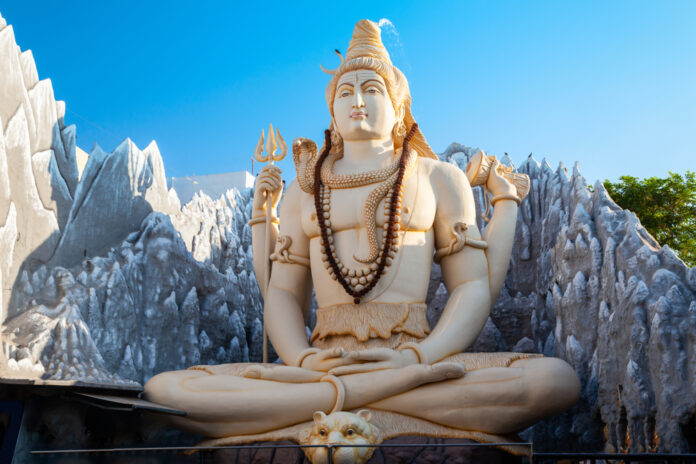Understanding the Significance of Mahashivratri
Mahashivratri, one of the most revered festivals in Hindu culture, holds immense spiritual significance for devotees across the world. This auspicious day is dedicated to Lord Shiva, the supreme god of destruction and regeneration. Celebrated with fervor and devotion, Mahashivratri carries profound symbolism and traditions that enrich the spiritual lives of millions. Let’s delve deeper into the significance of Mahashivratri and explore the customs associated with this holy occasion.
Also Read: Mahashivratri 2024 : Date, Story, Pooja Timings
Origin and Mythological Significance
- Legend of Neelkanth: According to Hindu mythology, Mahashivratri marks the night when Lord Shiva performed the Tandava, the cosmic dance of creation and destruction, to save the world.
- Marriage of Shiva and Parvati: It is believed that on this day, Lord Shiva married Goddess Parvati, symbolizing the union of the masculine and feminine energies in the universe.
Spiritual Significance
- Blessings and Grace: Devotees observe Mahashivratri to seek blessings from Lord Shiva for spiritual growth, health, and prosperity.
- Detoxification and Rejuvenation: It is a day for inner purification, letting go of negativity, and welcoming positive energy.
- Awakening Consciousness: Mahashivratri encourages devotees to awaken their spiritual consciousness and introspect on their inner selves.
Traditions and Customs
- Fasting: Devotees observe a strict fast on Mahashivratri, consuming only fruits, milk, and water to purify the body and mind.
- Nightlong Vigil (Jagran): Many people stay awake all night, singing hymns, chanting mantras, and meditating in honor of Lord Shiva.
- Abhishekam: The ritualistic bathing of the Shiva Lingam with milk, honey, ghee, and water symbolizes reverence and purification.
- Offerings: Devotees offer Bilva leaves, dhatura, and other sacred items as offerings to Lord Shiva.
Importance of Mahashivratri in Modern Society
- Cultural Unity: Mahashivratri transcends regional and cultural boundaries, bringing people from diverse backgrounds together to celebrate a shared spiritual heritage.
- Promoting Inner Peace: In today’s fast-paced world, Mahashivratri serves as a reminder to prioritize spirituality, self-reflection, and mindfulness.
- Environmental Awareness: The eco-friendly aspects of Mahashivratri, such as planting trees and conserving resources, highlight the importance of environmental sustainability.
Celebrations Around the World
- India: Mahashivratri is celebrated with grandeur in temples across India, particularly in Varanasi, the city of Lord Shiva.
- Nepal: Pashupatinath Temple in Kathmandu witnesses a large gathering of devotees during Mahashivratri.
- International Celebrations: Mahashivratri is observed by Hindu communities worldwide through prayer gatherings, cultural events, and spiritual discourses.
The Symbolism of Lord Shiva
- Destroyer of Ignorance: Lord Shiva, also known as Mahadev, symbolizes the destruction of ignorance and the ego, paving the way for spiritual awakening.
- Lord of Meditation: Shiva’s third eye represents the power of inner vision, wisdom, and meditation.
- Guardian of Positive Energy: Worshipping Lord Shiva is believed to bring peace, prosperity, and protection from negative energies.
List of Lord Shiva Special Days
Lord Shiva, the supreme deity in Hindu mythology, is revered by millions of devotees worldwide for his role as the destroyer and transformer of the universe. In addition to the widely celebrated festival of Mahashivratri, there are several other special days dedicated to Lord Shiva that hold profound significance in the Hindu calendar. Let’s explore some of these auspicious occasions when devotees pay homage to the Mahadev.
1. Mahashivratri
- Significance: Celebrated annually in honor of Lord Shiva, Mahashivratri is believed to be the night when Shiva performed the Tandava, the cosmic dance of creation and destruction.
- Customs: Fasting, nightlong vigils, offering prayers, and performing abhishekam on Shiva Lingam are common customs observed on Mahashivratri.
2. Shivaratri
- Significance: Shivaratri falls on the 14th day of every lunar month and is dedicated to worshipping Lord Shiva.
- Observances: Devotees observe fasting, visit Shiva temples, and perform Rudrabhishekam on this day to seek blessings from Lord Shiva.
3. Pradosham
- Significance: Pradosham is observed twice every month and is considered an auspicious time for worshiping Lord Shiva.
- Rituals: Special prayers, abhishekam, and offering of Bilva leaves are performed during Pradosham to seek the blessings of Lord Shiva and overcome negativity.
4. Maha Rudrabhishekam
- Significance: Maha Rudrabhishekam is a grand ritual where the Rudra form of Lord Shiva is worshipped with elaborate offerings.
- Purpose: Devotees believe that performing Maha Rudrabhishekam brings peace, prosperity, and blessings from Lord Shiva.
5. Karthigai Deepam
- Significance: Celebrated in the Tamil month of Karthigai, this festival involves lighting lamps to symbolize the divine enlightenment of Lord Shiva.
- Customs: Devotees light rows of lamps, visit Shiva temples, and offer prayers to seek the blessings of Lord Shiva on Karthigai Deepam.
6. Shravan Month
- Significance: The holy month of Shravan is dedicated to Lord Shiva, with Mondays (Somvar) considered especially auspicious for Shiva worship.
- Observances: Devotees fast, visit Shiva temples, chant mantras, and perform special rituals throughout the month of Shravan to honor Lord Shiva.
7. Prayaga Pravas
- Significance: Prayaga Pravas is a pilgrimage to the confluence of rivers, particularly the Ganga, Yamuna, and Saraswati, where devotees seek divine blessings.
- Spiritual Importance: It is believed that bathing in the holy waters during Prayaga Pravas cleanses the soul and brings spiritual enlightenment under the grace of Lord Shiva.





